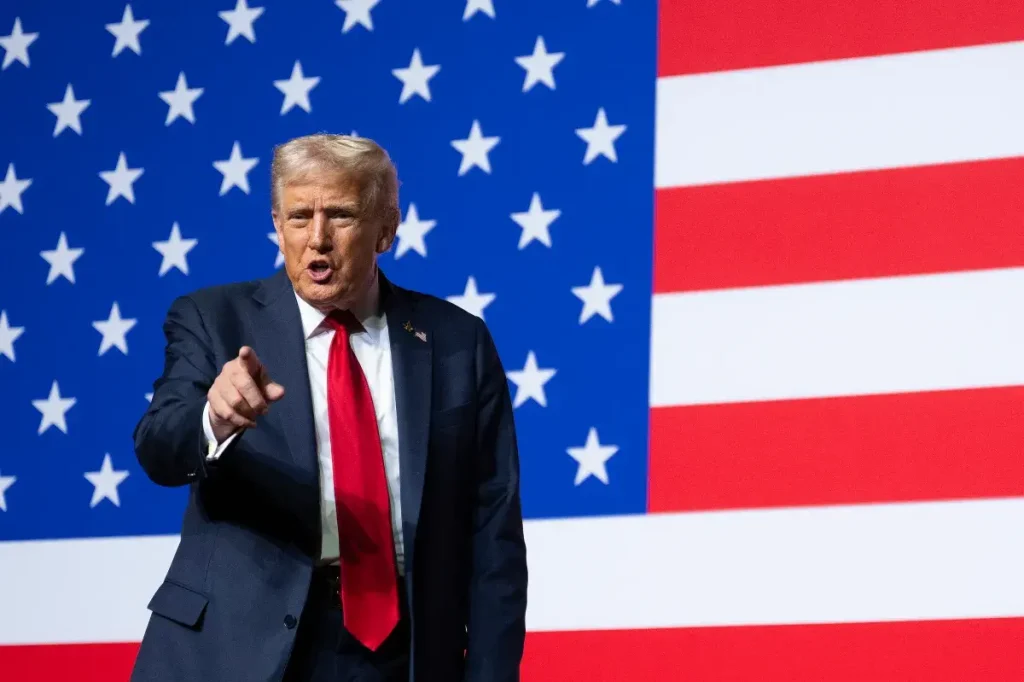Trump Voices Rare Concern About GOP’s 2026 Midterm Prospects
In a surprising display of political candor, President Donald Trump recently expressed concern about Republican performance in the upcoming 2026 midterm elections. During an interview with One America News Network, Trump acknowledged a historical pattern that has plagued sitting presidents for decades: “The one thing that I worry about is that, if you look over many, many years, I don’t have the numbers, but the person that wins the presidency always seems to lose the midterms.” This rare admission of potential vulnerability comes at a particularly sensitive moment, as his administration navigates through a government shutdown that could further impact his political standing.
The president’s concerns aren’t unfounded. Historical data strongly supports the pattern Trump referenced – the Brookings Institution has documented that since 1938, the president’s party has lost ground in 20 out of 22 midterm elections. Only twice has this pattern been broken: in 2002, when President George W. Bush enjoyed high approval ratings following the September 11 attacks, and in 1998, when Republicans’ failed impeachment attempt against President Bill Clinton backfired politically. This consistent historical trend presents a formidable challenge for Trump and Republican lawmakers, who would need to overcome powerful political headwinds to maintain their current congressional majorities through 2026.
Adding to Republican concerns, Trump’s approval ratings have recently declined to their lowest point since beginning his second term. According to the Vote Hub polling tracker, Trump’s net approval rating hit -10 points on September 30, with 43 percent approving and 53 percent disapproving of his performance. Though these numbers showed a slight improvement as the government shutdown commenced (moving to a net approval of -9 points with 44 percent approving), they still indicate potential vulnerability that Democrats could exploit in future elections. The current shutdown may further complicate matters, as prolonged disruption of government services often leads to increased public frustration with incumbent leadership.
Despite these challenges, Trump maintains his characteristic optimism about America’s economic trajectory under his leadership. During the same OAN interview, he boasted: “We are becoming a country that is so rich, so powerful, it gives us power, so rich… the numbers we’re making, nobody thought it was possible. Now they’re all saying, ‘Trump was right.'” This rhetoric demonstrates Trump’s continued focus on economic achievements as his administration’s primary selling point, likely hoping strong economic performance could offset other political liabilities before voters head to the polls in 2026.
The ongoing government shutdown represents both a policy challenge and a political risk for Trump. While betting markets suggest many Americans believe the shutdown could last for weeks, its ultimate duration remains unclear. Various federal agencies have already suspended nonessential services until further notice, impacting government operations across the country. More significantly for Trump’s political fortunes, the administration has signaled it might use this shutdown as an opportunity to implement additional reductions in the federal workforce – a move that could either strengthen his standing with fiscal conservatives or alienate moderate voters concerned about government services.
For Democrats, Trump’s rare moment of expressed concern creates a potential opening. The party is already hoping to replicate their successful “blue wave” of 2018, when they retook control of the House during Trump’s first term. Current polling trends and historical precedent both suggest they have reason for optimism about 2026. However, much can change in American politics over two years, and Trump has repeatedly demonstrated his ability to defy conventional political wisdom. The coming months will likely determine whether the president’s momentary admission of worry was a fleeting concern or a prescient recognition of genuine political vulnerability for him and his party as they navigate the challenges of his second term.


